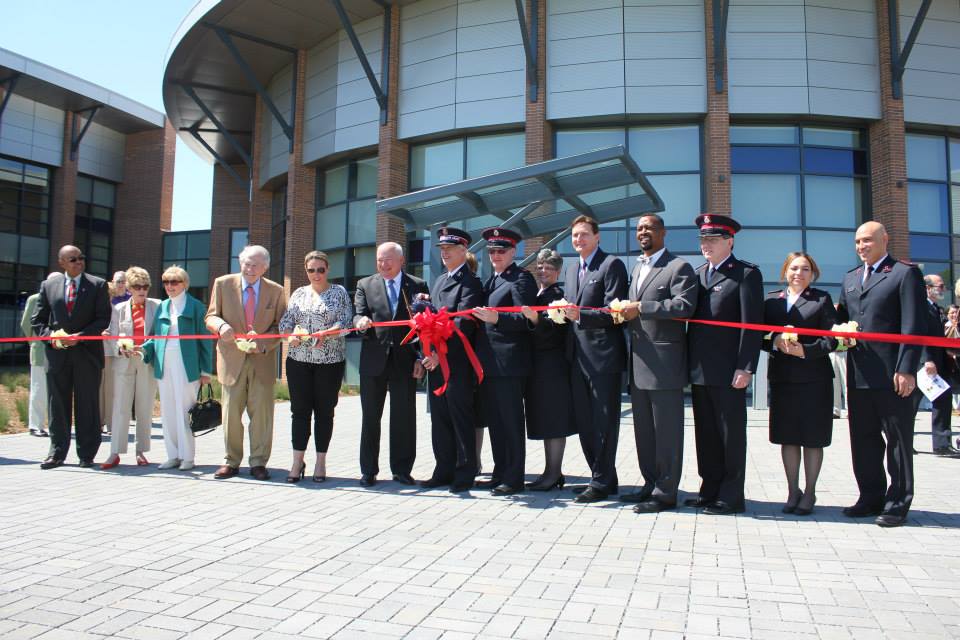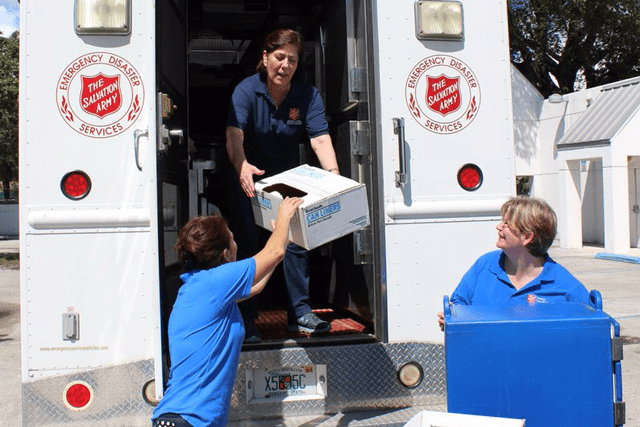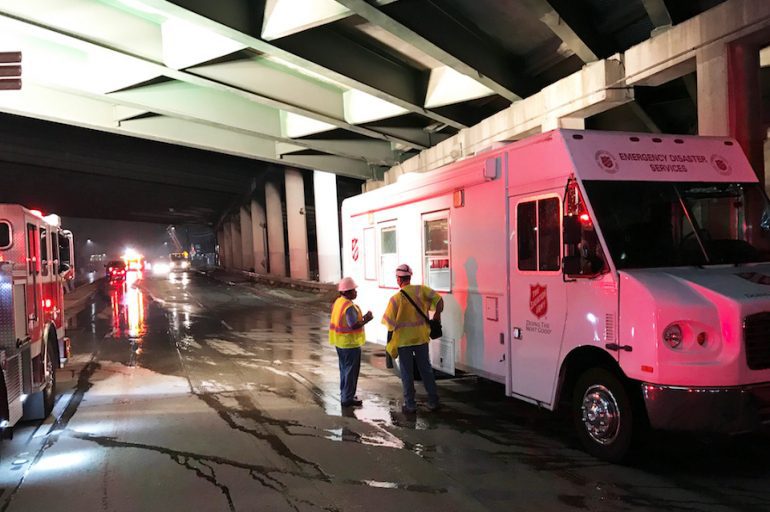by Jeff Curnow –
Weeks after Hurricane Katrina devastated the gulf coasts of Alabama, Mississippi and Louisiana, the scope of the disaster and immensity of the task of rebuilding—cities, lives and families—is only starting to become apparent.
Corporate donations continue to flow in, offering encouraging news to those affected by the storm. Among numerous donations and offers of help, Books-A-Million, a longtime supporter of The Salvation Army’s programs, has offered their customers the opportunity to donate at any of their locations or on their website, www.booksamillion.com. The Conrad N. Hilton Foundation board allocated $2.5 million to the Army’s Katrina relief efforts.
The stories of human suffering are almost mind numbing, but stories of those whose faith and strength helped them to overcome are beginning to emerge—heroes are being made of Army personnel who most assuredly felt they were only doing their duty.
The Salvation Army Western Territory continues to deploy officers, employees or volunteers to Texas and Mississippi. Several Western Territory officers have been available at the Houston Astrodome, to counsel and provide links to other help, to those affected by Katrina. Major Evelyn Chavez, property secretary for the Golden State division, has been serving as the incident commander at Reliant “City” in the Astrodome.
The public’s outpouring of support has been overwhelming. The 1-800-SAL-ARMY phone line continues to be swamped with calls. Through expert work by the Army’s information technology department, overflow calls from the south were routed to Western THQ. More than 5,000 phone calls that would otherwise have gone unanswered have been handled by volunteers staffing phone lines at THQ.
Captain Rhonda Lloyd acted as a call center coordinator. Her experience echoed reports from many of those who volunteered, “The first night of taking calls was chaotic and confusing…however, as the days and calls went on, it became…evident that the Disaster Line was becoming a Life Line. Calls came from those desperately needing help as well as those wanting to help.”
According to internet programmer Karl Larsson, for the first time, “online donations have outstripped telephone donations—by almost double. In the Western Territory alone, more internet donations were collected in the first four days after the hurricane hit than were raised worldwide since the site was launched in 1996!”
Still working to locate and re-connect the thousands who have been displaced by the storm, Salvation Army Team Emergency Radio Network (SATERN) has been active 24-hours-a-day, for several weeks. SATERN has received more than 60,000 inquiries that have led to locating more than 8,400 survivors.
In Midlothian, Texas, the Army is assisting 120 hurricane survivors at Camp Hoblitzelle. In addition to providing for basic needs, the Army is partnering with local businesses to provide free prescription refills, dental treatment and optical care. The Army is helping children enroll at local schools and opening a child-care center so parents with small children can look for work and a place to relocate. Family focused activities are also being provided for people staying there.
“I have seen things that no one should ever see,” said Patrick, a 19-year-old who slept on a bridge and in the Superdome before being evacuated [to Camp Hoblitzelle]. “Since I have been here in Texas nobody has treated us as well as The Salvation Army. They feed us, clothe us and give us what we need to get our lives back together.”
Photo by Ron Londen–Journey Group













